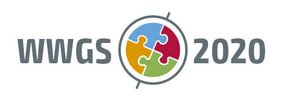Monday, 26 October
|
|
13.00 - 13.15 Welcome
Opening session of the What Works Global Summit 2020
13.15 - 14.00 Plenary address: The Campbell Collaboration and the creation of a new professional specialty
Larry V. Hedges, Professor of Statistics and Education and Social Policy at Northwestern University, USA, will open WWGS 2020 with a presentation about how the Campbell Collaboration was instrumental in the evidence-based social policy movement and the creation of the specialty of systematic reviewing that is essential to support it.
15.00 - 16.00 Introducing the Campbell Methods Library and the Campbell Methods Working Groups
The Methods Library provides open access, peer reviewed, multidisciplinary methods articles on innovative methods, tutorials, translation, and systematic review of methods. This session includes an update on the work of the Campbell Methods Working Groups on economics, equity, statistics, qualitative evidence, information retrieval, as well as guidelines for overviews of reviews and non-randomised studies.
Tuesday, 27 October
|
|
13.00 - 14.30 Scandinavian panel: Advancing the production, accessibility and use of systematic evidence syntheses
Highlighting examples from the Scandinavian countries, with three centres that represent social work and two that represent the education sector. A main goal is to highlight constraints and affordances in ways of organizing for the promotion of evidence use at a national level.
15.30 - 17.00 International development and evidence gathering in the age of Covid-19
The Covid-19 pandemic has brought to the fore particular challenges of evidence gathering. Generating high-quality evidence that is easily digestible takes a long time, which seems incompatible with the pace this pandemic demands. Selected systematic review authors will introduce their reviews, covering a range of themes. The objective is to invite reflection on how timelines of time-intensive synthesis work could be shortened to be able to respond more quickly to emerging crises. We will also discuss how best this evidence could be disseminated to ensure the widest possible reach to stakeholders.
Wednesday, 28 October
|
|
10.00 - 11.30 One year of the Campbell China Network
Eight presentations of on-going evidence synthesis projects, by speakers from member research institutions in China.
12.30 - 14.00 Campbell Members' Conference Open to all
Thursday, 29 October
|
|
10.00 - 11.30 Evidence synthesis and mapping initiatives on international development interventions in low- and middle-income countries
This session has been put together by Campbell South Asia.
13.00 - 14.30 Preventing terrorism and radicalisation: An overview of the Campbell Crime and Justice 5RD programme of systematic reviews
An overview of the first two years of a major international collaboration to produce systemic review evidence on the prevention of terrorism and radicalisation. The presentations will seek to draw out the lessons of the first two phases and some emerging themes for policy and practice.
Friday, 30 October
|
|
